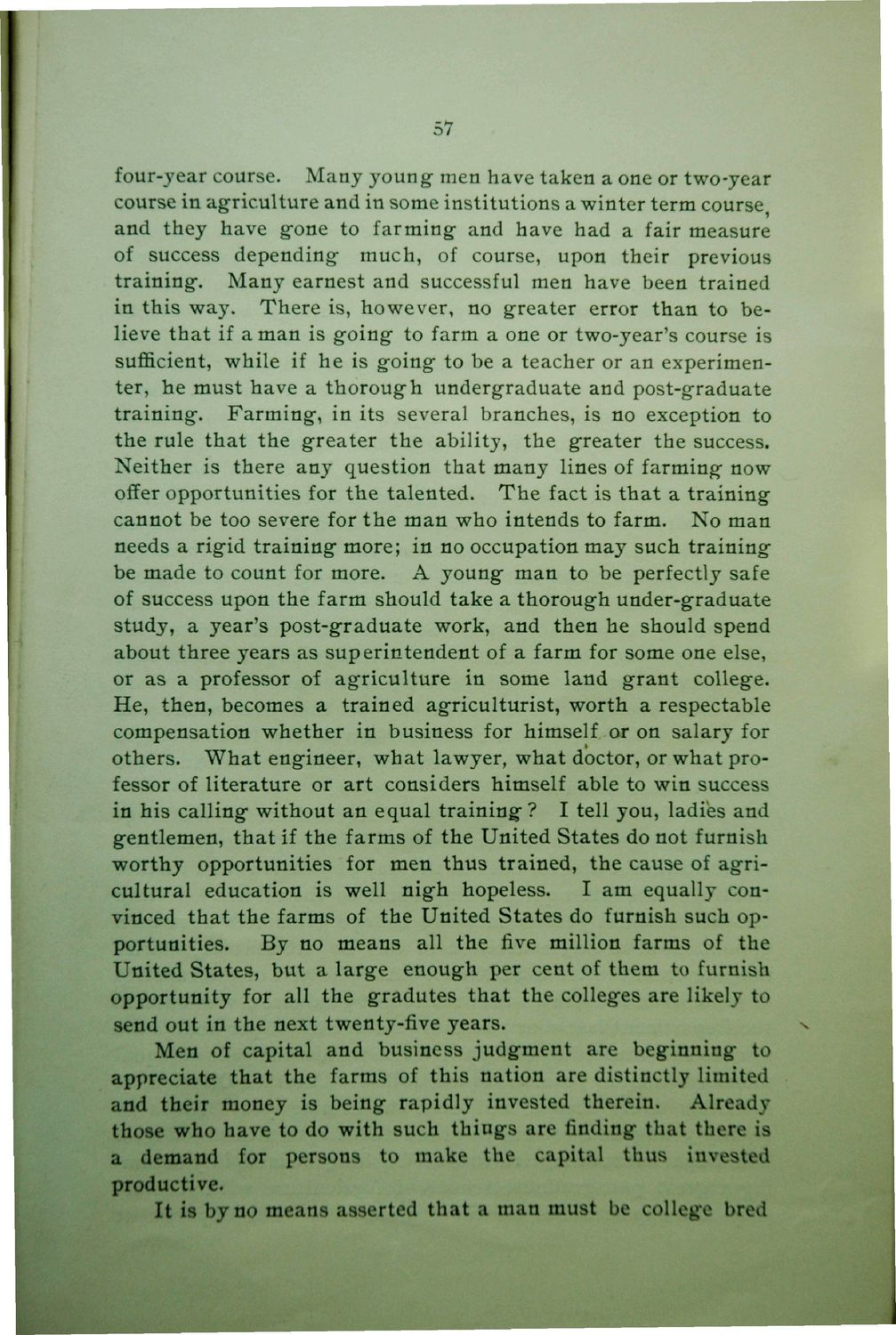| |
| |
Caption: Dedication - Ag Building
This is a reduced-resolution page image for fast online browsing.

EXTRACTED TEXT FROM PAGE:
57 four-year course. Many young men have taken a one or two-year course in agriculture and in some institutions a winter term course and they have gone to farming and have had a fair measure of success depending much, of course, upon their previous training. Many earnest and successful men have been trained in this way. There is, however, no greater error than to believe that if a man is going to farm a one or two-year's course is sufficient, while if he is going to be a teacher or an experimenter, he must have a thorough undergraduate and post-graduate training. Farming, in its several branches, is no exception to the rule that the greater the ability, the greater the success. Neither is there any question that many lines of farming now offer opportunities for the talented. The fact is that a training cannot be too severe for the man who intends to farm. No man needs a rigid training more; in no occupation may such training be made to count for more. A young man to be perfectly safe of success upon the farm should take a thorough under-graduate study, a year's post-graduate work, and then he should spend about three years as superintendent of a farm for some one else, or as a professor of agriculture in some land grant college. He, then, becomes a trained agriculturist, worth a respectable compensation whether in business for himself or on salary for others. What engineer, what lawyer, what doctor, or what professor of literature or art considers himself able to win success in his calling without an equal training1 ? I tell you, ladies and gentlemen, that if the farms of the United States do not furnish worthy opportunities for men thus trained, the cause of agricultural education is well nigh hopeless. I am equally convinced that the farms of the United States do furnish such opportunities. By no means all the five million farms of the United States, but a large enough per cent of them to furnish opportunity for all the gradutes that the colleges are likely to send out in the next twenty-five years. Men of capital and business judgment are beginning to appreciate that the farms of this nation are distinctly limited and their money is being rapidly invested therein. Already those who have to do with such things are finding that there is a demand for persons to make the capital thus invested productive* It is by no means asserted that a man must be college bred \
| |